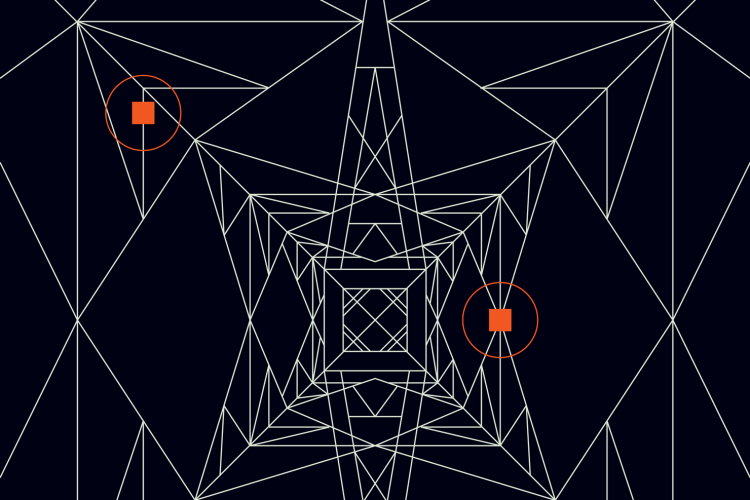
Phosphorus Cybersecurity Inc., the leading provider of security and device management for the extended Internet of Things (xIoT), today shared a key update to expand its vision of transforming enterprises through autonomous xIoT operations globally.
The company secured a strategic investment from Intesa Sanpaolo’s venture capital firm, Neva SGR, based in Turin, Italy. This latest funding will support continued investment in Phosphorus’ go-to-market opportunity to drive business growth and advance AI capabilities in xIoT security and management.
Business Growth and International Presence
Phosphorus continues to experience remarkable growth, driven by strong momentum with enterprise customers worldwide including representation within the Fortune 10.
The market need for scalable xIoT security and management is growing as adversaries increasingly view xIoT as a viable attack vector and the regulatory environment responds. Phosphorus is positioned to help organizations address the untenable problem of managing and securing hundreds of thousands of devices especially in sectors such as healthcare, pharmaceuticals, datacenters, manufacturing, and hospitality.
Phosphorus closed out the year with record platform growth. In 2024 alone, the company more than doubled the number of devices under management and is on pace to triple that footprint by year’s end. Since its Series A, Phosphorus has expanded its support from fewer than 200 distinct device manufacturers to over 1,100, establishing the broadest, deepest, and most scalable xIoT device management coverage in the industry.
Following the company’s success in the Americas, Phosphorus is answering the call for xIoT security internationally, with initial global expansion into Saudi Arabia, and a recently established footprint in the Asia Pacific region. Looking ahead, Phosphorus plans to deepen its footprint in the Middle East and make its initial entry into Italy and the broader European market.
The Evolution of xIoT Operations
The xIoT landscape — encompassing a wide range of embedded devices such as IoT, OT, IIoT, IoMT, and others — represents a critical problem space due to its rapid expansion, persistent security challenges, and the complexities of managing devices at scale. The number of connected devices globally is expected to reach hundreds of billions in the next decade. It is now more evident than ever that humans alone cannot scale to effectively manage the global xIoT footprint.
The urgency of this problem has now moved from theoretical to operational. The recent Akira ransomware campaign, which trivially deployed ransomware through vulnerable IoT devices, underscores the consequences of poor security hygiene. This marks a dangerous evolution — from speculative risk to active exploitation — with attackers now leveraging xIoT to disrupt critical operations and demand multimillion-dollar ransoms. This campaign amplifies the need for foundational security measures across all xIoT device types and signals the beginning of a new era where threat actors increasingly target xIoT to launch major attacks like ransomware, specifically because these devices offer easy pathways to evade existing IT defenses.
“We are witnessing one of the most profound technological transformations in human history, driven by the increasingly pronounced convergence of xIoT, AI, and cybersecurity,” said Chris Rouland, CEO of Phosphorus. “Eight years ago, we recognized the xIoT security hygiene problem and set out to tackle it at scale. We started by building a platform to address fundamental issues such as weak passwords, insecure configurations, and vulnerable firmware in xIoT. Today, we are laying the groundwork to evolve from intelligent automation to full autonomy.”
Phosphorus envisions a future with autonomous xIoT operations, where devices are autonomously discovered, secured, managed, and operated without manual intervention. Today, Phosphorus is seeing proof points of the first step of this journey in action across several customers who use the platform to perform automated remediation and device management actions daily. The company has begun building the foundation to help realize the autonomous future of xIoT operations.The Phosphorus platform has received multiple industry awards and is deployed worldwide in large enterprises across various industries, facilitating a unique device-centric approach to securing and managing xIoT. To learn more, visit www.phosphorus.io or meet Phosphorus xIoT experts at select upcoming conferences.
ABOUT PHOSPHORUS
Phosphorus is the leading extended Internet of Things (xIoT) security and management platform delivering a proactive approach to managing the expanding IoT, OT, and IoMT attack surface. Designed to find and secure the rapidly growing, unknown, and unmanaged world of devices across the xIoT landscape, the Phosphorus platform provides unmatched security management for devices across every industry vertical — delivering high-fidelity discovery and risk assessment, proactive hardening and remediation, and continuous monitoring and management.
With patented xIoT Intelligent Active Discovery and risk assessment, Phosphorus automates the remediation of the most significant xIoT device and operational risks – including inaccurate asset inventory, default credentials, out-of-date and vulnerable firmware, risky configurations, banned and end-of-life devices, and expired or insecure certificates. To learn more, visit www.phosphorus.io or meet Phosphorus xIoT experts at select upcoming conferences.


